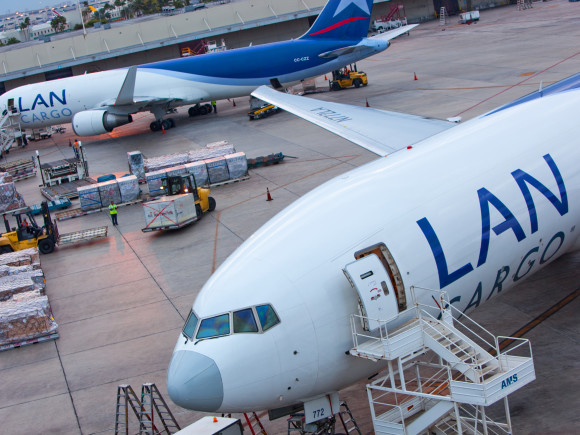Up until recently, the documents backing cargo shipments for freight forwarders and cargo airlines were paper-based, which led to slow, inefficient, and unsustainable processes.
This started to change when the e-AWB, or electronic Air Waybills, was introduced by IATA and the aviation industry. Together they developed the Multilateral e-AWB Agreement, intended to reduce the amount of paper used in these processes.
We have been working on this project since 2012. Our goal is to move towards a more electronic process for our trade operations and evolve towards greener surroundings. All changes, however, take time and every detail is important. It is not possible to continue using so much paper: it generates more weight on the aircraft which results in higher fuel consumption. This has a negative impact on the environment”, Gabriela Peralta, IATA’s General Manager in Chile.
IATA expects 22% of the global aviation industry to use the e-AWB by the end of 2014, 45% by 2015 and 80%t by 2016. In Latin America, Chile, Mexico, and Brazil are on the cutting edge of the implementation of this new technology.
LAN CARGO is the pioneer in Chile and one of the more advanced companies in Latin America in the use of the e-AWB, a process which we started to enforce a year ago. As an airline, we want the e-AWB to become the standard for all our customers, not only those who have their own systems. To that end, we designed a website for customers to enter the e-AWB information, enabling them to use this system”, Óscar Pradenas, LAN CARGO’s Project and Commercial Processes Manager.
Benefits of the e-AWB: increase in productivity, cost reduction, quick response to government agencies, improved quality of information and customer service, cost reduction in processes derived from the reduction of paper usage, increase in data precision, elimination of storage requirements for AWB, real-time access to information by staff at all stations, and a first step towards a paper-free environment in the air cargo industry.
Some airlines around the world that are currently utilizing e-AWB: Air Canada, Air France-KLM, American Airlines, Avianca, Cargo Lux, Cathay Pacific, Delta, Korean Air, Eva Air, IAG, LATAM Airlines Group, Singapore Airlines, Lufthansa, Qantas, Turkish, Asiana, China Airlines, Aeroméxico and Atlas Air.
